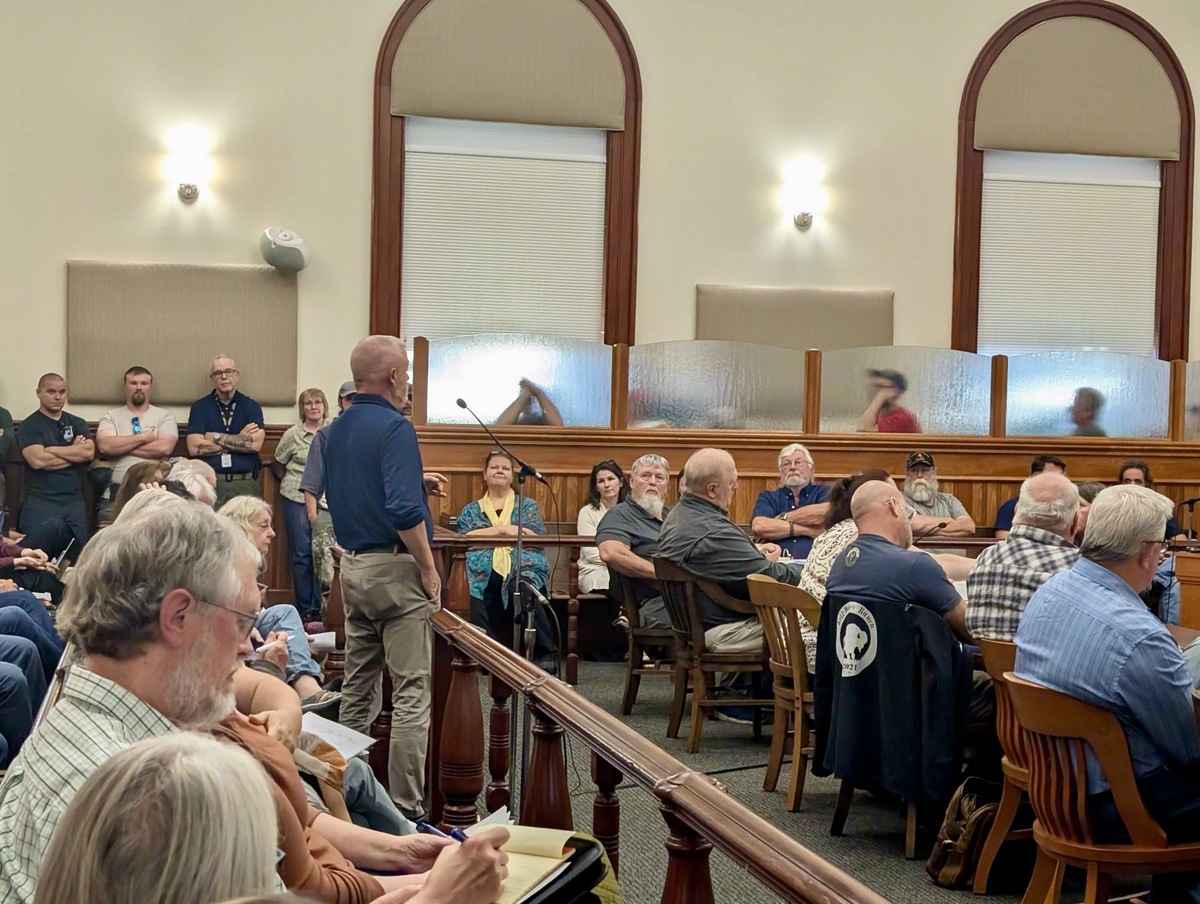MACHIAS, Maine — Washington County commissioners are under fire after presenting a 2026 budget proposal that includes a staggering 40% budget hike. At a packed and lengthy public hearing on Thursday, residents voiced their outrage and concerns over what they perceive as fiscal mismanagement and a looming financial crisis.
The proposed budget, which is now subject to edits from an advisory committee, is closely tied to a bond referendum scheduled for the November 4 ballot. The outcome of this vote could determine the county’s financial future, as a rejection by taxpayers, already burdened by high taxes and frustrated by past mismanagement, would plunge Washington County into deeper uncertainty.
This article delves into the details of the proposed budget, the reasons behind the dramatic increase, and the potential consequences for Washington County residents. We’ll examine the concerns raised by the public, the responses from county officials, and the steps being taken to address the fiscal challenges facing this Down East community.
A County on the Brink: Understanding the Fiscal Crisis
The root of Washington County’s current predicament lies in years of budget mismanagement that gradually depleted its reserves. According to Commissioner Courtney Hammond, “We’re screwed.”
The proposed bond aims to refinance the county’s mounting debts, which have accumulated due to spending without proper verification of available funds. This financial oversight led to a cash shortage earlier this year, forcing the county to take on millions more in debt that is due in December.
Without the bond, Washington County is projected to run out of money by the new year. While a complete shutdown is not legally possible due to mandated services, the alternative remains unclear and deeply concerning for residents.
The Budget Process: A Battle for Down East Towns
Unlike the bond issue, which will be decided by voters in November, the county budget itself does not undergo a public vote. Instead, it is subject to negotiation between the advisory committee and the commissioners following revisions.
The final budget will place a greater financial burden on Down East towns, potentially leading to contentious budget battles between town select boards and their constituents in 2026. These local governments will face difficult decisions, including raising taxes, cutting services, or both, to cover the fixed county expenditures.
Eastport City Manager Brian Schuth, who chairs the advisory committee, acknowledged the severity of the situation, stating, “We simply won’t have enough cash to continue to keep the county functioning without doing something else dramatic, and I’m not sure what that is right now.”
Public Hearing: Residents Voice Concerns and Frustrations
The budget proposal took a back seat to the outpouring of public concern during Thursday’s hearing. Despite the commissioners being new to their roles, they faced intense questioning and criticism from dozens of residents who gathered to express their anxieties about the county’s spending and the potential consequences of a failed bond measure.
Many attendees voiced their reluctance to vote on the bond referendum without a clear understanding of the ramifications of its failure. Robin Hadlock Seeley of Pembroke, who spent hours reviewing the county’s 2021 audit, admitted her confusion about the root causes of the financial mess.
“Personally, I’m not comfortable voting on this referendum until I feel comfortable that I really do understand what happened year after year after year, how that ends up to such a terrible mess,” she said.
Julie Morgan of Northfield echoed the sentiment of many others, expressing her frustration and holding the officials accountable. “I pay my taxes. I pay my bills. I watch my budget,” Julie Morgan of Northfield said. “I’m ashamed that you folks would actually come to the taxpayers to bail you out.”
Officials Respond: Blame, Apologies, and a Lack of Alternatives
Commissioner David Burns responded to Julie Morgan’s statement by stating, “We had no alternative.”
With the mismanagement of funds occurring mostly during the tenure of previous commissioners and under the oversight of longtime treasurer Jill Holmes, most of the public officials present had not served in prior years. Repeatedly, officials passed blame onto prior commissioners.
Former Commissioner Chris Gardner, who served for 20 years before retiring last year, stepped forward to apologize for the oversights. Gardner stated, “If you want accountability, if you want somebody to blame … I’m your huckleberry,” he said. “I’m sorry, I missed it.”
The Bond Referendum: A Critical Decision for Washington County’s Future
The upcoming bond referendum on November 4 represents a pivotal moment for Washington County. A successful vote would allow the county to refinance its debts and stabilize its finances, providing a path towards long-term sustainability.
However, a rejection of the bond would have severe consequences, potentially leading to further cuts in essential services and increased financial hardship for residents. The outcome of this vote will shape the future of Washington County and its ability to serve its citizens.
Washington County’s Crossroads: A Call for Accountability and Transparency
Washington County stands at a crossroads, facing a significant fiscal crisis that demands immediate attention and decisive action. The proposed 40% budget hike has ignited public outrage, highlighting the need for greater accountability and transparency in county government.
As residents prepare to vote on the bond referendum in November, it is crucial for them to be fully informed about the issues at stake and the potential consequences of their decision. The future of Washington County depends on a collaborative effort between county officials and the community to address the challenges and build a more sustainable financial future.

Leave a Reply